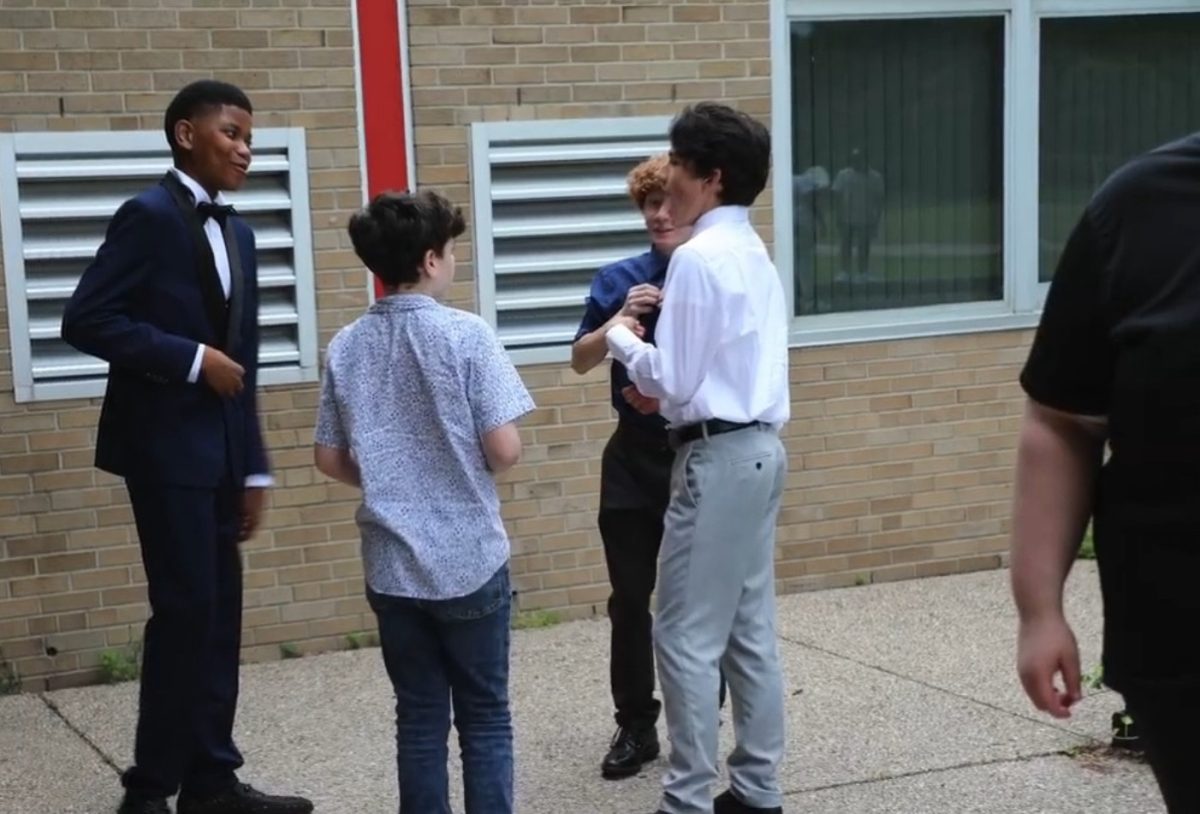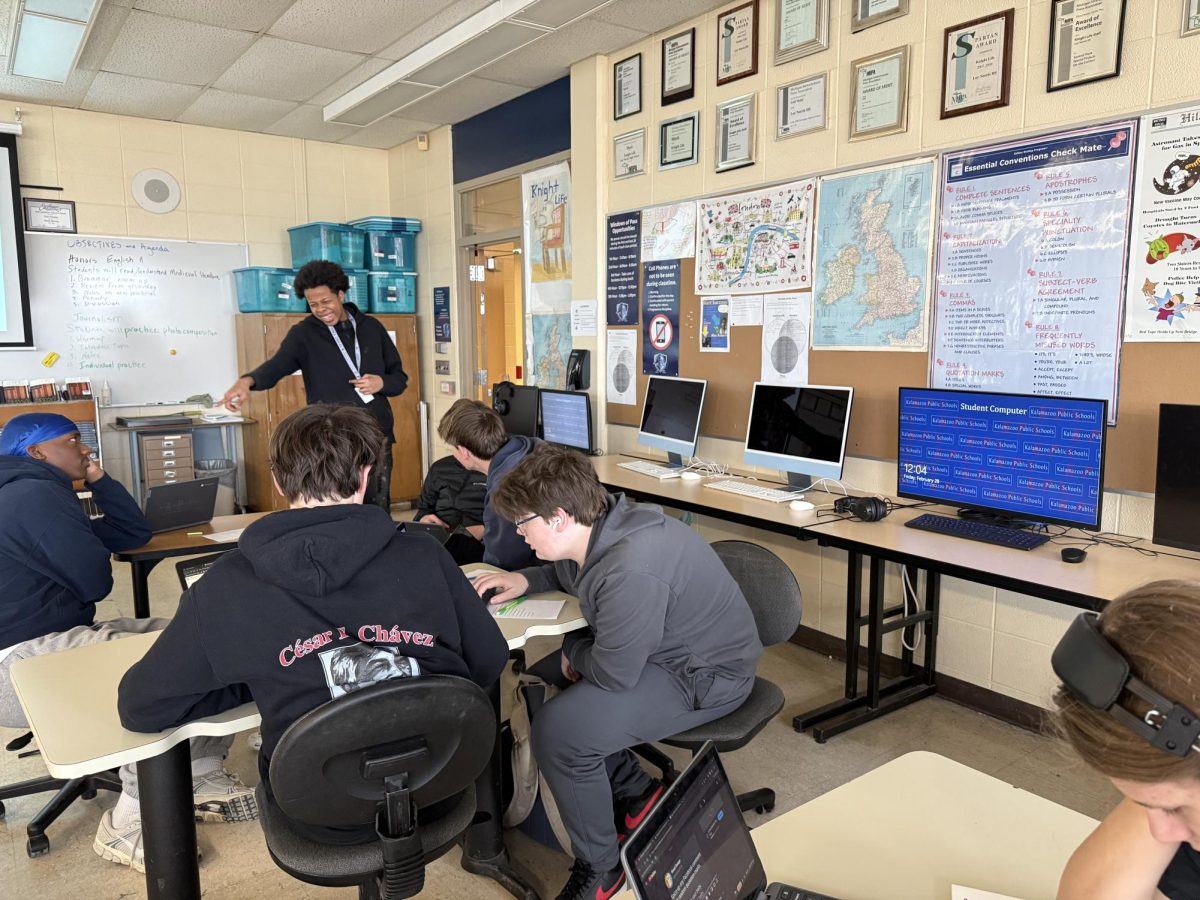
(Credit: Olivia Nitz)
Richard Phillips sat in his prison cell, painting as he served a life sentence for a crime he didn’t commit. The years blended together as the appeals he filed were denied, each rejection chipping away at his hope of seeing his family again. Outside, the world had moved on without him: his family hadn’t come to see him, he had lost his job, and his freedom felt like a distant memory. Then, nearly half a century later, everything changed: a breakthrough in his case proved what he had always known — he was innocent. It had almost been half a century, but he was free to go.
Phillips was wrongfully convicted of robbery in 1971, and while in prison in 1972 was additionally convicted of the murder of Gregory Harris. For these crimes, Phillips was sentenced to life in prison, and as a result, he spent 46 years behind bars. Phillips is the third longest-serving, wrongfully convicted person in United States history.
Phillips’ conviction was based on a false testimony from a friend, Fred Mitchell, who turned out to be the actual killer. Mitchell robbed a store and was arrested for armed robbery and having a concealed weapon. Mitchell then told the police that Richard Phillips and Richard Palombo, who was the accomplice of Mitchell, murdered Gregory Harris.
“They had us separated from the time that they testified against us,” Phillips said. The friend that actually did the crime was the one that testified on me on trial, and I’ve never had a chance to talk to him.”
Before prison, Phillips had a successful life, with a wife, two kids and a well-paying job at Chrysler as a typist, despite dropping out of high school in 10th grade.
However, after Phillips’ conviction at 25 years of age, he lost everything: his wife, his job, and, most devastatingly, his children. Not wanting to let his conviction burden his family, Phillips decided to cut ties, asking his wife to divorce him and never bring his children to visit, which cut off all support he would have had during his incarceration.
“Once I went to prison, I told my wife to take the kids, start another life,” Phillips said. “I got life without parole. I was gonna die in there. Don’t try to sit around and wait on me.” While losing his family was necessary, the loss hurt him deeply.
The Prison Policy Initiative conducted a study on a sample of incarcerated individuals and found that those who were far away from their families were more likely to experience depression. Phillips’ story was no exception.
“The hardest part about the whole experience was losing the relationship with my kids,” Phillips said. “The kids are yours forever, whether you like it or not.”
Even with not having a family to visit Phillips found ways to keep himself busy. He tried multiple things, including joining the pen pal club, getting a job and enrolling in classes to finally earn his General Education Development (GED), as he had regretted dropping out of high school.
“I wanted to better myself while I had the chance,” Phillips said.
Even with all of this, his one true passion was art. Art had become his lifeline in prison, giving him an escape from the violence and negativity he wanted to avoid.
“I had to get into a room and get me a paintbrush and a pencil and be creative because that was what kept me going,” Phillips said. “Stay away from the nonsense, and then maybe one day I’ll be able to stay alive long enough to get out of here.”
After 46 years of avoiding bad influences and focusing on his art, Phillips finally saw the light at the end of the tunnel. In 2018, with the help of The Michigan Innocence Clinic, he was released from prison after a review of his case proved that he had been wrongfully convicted. Almost five decades after he had been sentenced, Phillips was finally free.
Adjusting to outside life was hard. Being in his 70s, Phillips didn’t believe he could or would be able to get a job, so he instead thought about his art. After contacting his old pen pal and learning she still had some of his work, he had the paintings shipped to Michigan to begin selling them.
“I would estimate [I sold] between 25 and 50. I didn’t have any money, and I had to have some money in order to live,” Phillips said. “I kind of priced them low when I got out, but now if someone doesn’t have a minimum of five grand, they can’t talk to me about trying to buy.”
Now, at 78, Phillips believes he has almost gotten everything back he lost, with one thing missing: his kids.
“I’ve gotten everything back and more with the exception of a relationship with my kids,” said Phillips. “The only thing that didn’t get better was that.”
Even though he hasn’t seen his daughter in over 50 years, he still has hope for reconnection.
“I mean, I’m hopeful that maybe someday she’ll come around. I’m always open to that. It’s just they are the ones that didn’t have a father, weren’t there, didn’t know me. So it’s like meeting a total stranger after 50 years,” said Phillips.
With his prison life behind him, Phillips refuses to be consumed by anger. Instead, he focuses on mentoring young people and telling his story to become a positive influence for kids around the world.
“This keeps me going and motivated to try to make the world a better place,” Phillips said. “If I can make a better society or help younger people be better citizens, then we should have a better world.”










